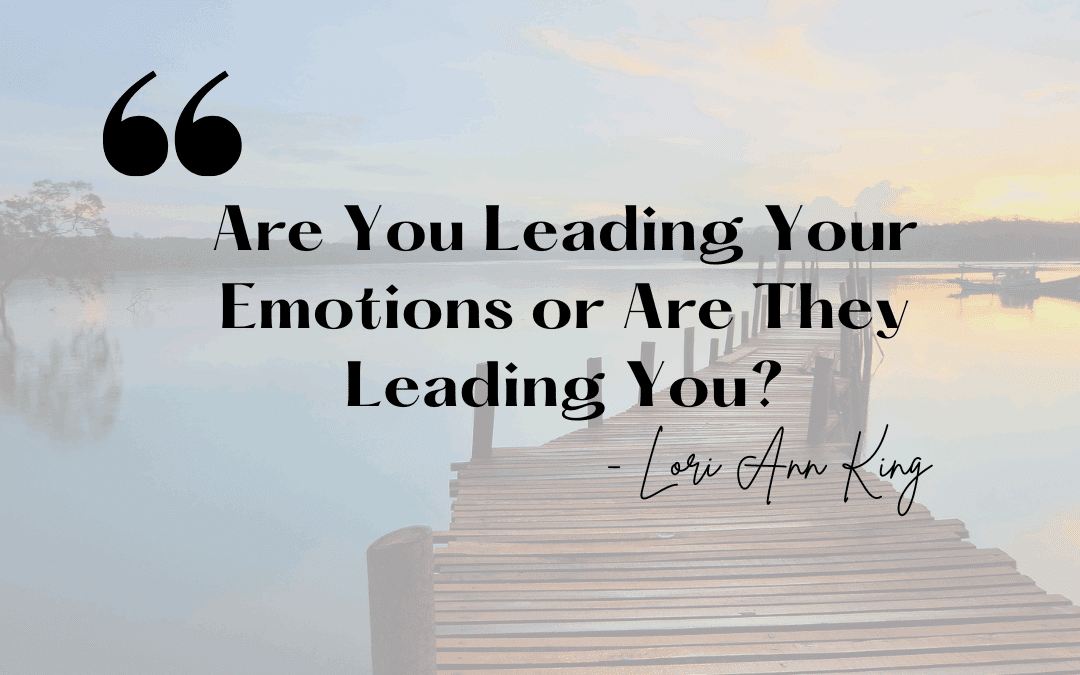Emotions are a choice.
Wait—what?
That statement might feel a little triggering. Controversial, even. But hear me out.
I’m not saying emotions are always easy to manage. Or that you should suppress what you feel. I’m certainly not saying that everything can be fixed with good vibes or a smile. What I am saying is: we often have more influence over our emotional state than we realize. And that influence begins with our thoughts.
I’m re-reading Breaking the Habit of Being Yourself by Dr. Joe Dispenza, and it’s hitting me on a deeper level this time around. He explores how our thoughts create emotions, which, when repeated, become our mood, then our temperament, and eventually, our personality. It’s not just theory; it’s a reality I’ve lived and written about for years.
Dispenza writes: “An experience creates an emotional reaction, which then can turn into a mood… If we’re not intentional, a bad mood can linger for weeks or months and eventually become part of our personality.”
It’s sobering—and empowering—to realize we may be memorizing emotional patterns without even knowing it. The thoughts we repeat most often? They become our emotional baseline.
We’ve all met someone who seems chronically grumpy—or chronically joyful. Those emotions aren’t random. They’re practiced.
The science behind emotions and peptide receptors
This perspective reminded me of what I wrote in Come Back Strong—about the science behind emotions and peptide receptors. The short version? Our cells build more receptors for the emotions we feel most often. So if we habitually feel fear, guilt, or anger, our bodies become more sensitive to those states. But the same is true for gratitude, joy, and love.
“Nobody else can live inside your skin or get into your head. You are the sculptor of your unique personal cellular structure, constantly making yourself over with your peptide receptors. Be sure to focus on the emotions you want to be able to feel the most intently and they will be the ones that replicate and get expressed more.”
– Lori Ann King, Come Back Strong
It also brought me back to a conversation from Lean In or Lighten Up, when my husband Jim asked me, during a tough, emotionally challenging moment, “What are you thinking right now?” At the time, I didn’t appreciate it. I didn’t want to take responsibility. But in hindsight, he was right—my thoughts were creating my feelings.
Emotions in Leadership
This work around self-awareness isn’t just personal—it’s leadership. I’m currently participating in ALTA, the Aggie Leadership Training Academy at New Mexico State University. Early in the program, we talked about “Leading Self” through the lens of Emotional Intelligence (EQ).
EQ includes six key components:
- Self-awareness
- Self-regulation
- Self-motivation
- Empathy
- Social skills
- Relationship management
Of all of these, self-regulation stood out to me most. One line from our ALTA manual says it best:
“Self-regulation is like being in the control room. We have the power and authority to control and manage how we feel, when we feel it… We cannot control what happens to us, but we can control how we react.”
This doesn’t mean we stuff our emotions or pretend everything’s fine. It means we pause. We choose. We shift.
Seek Support for Emotional Distress
Of course, none of this replaces medical care. If you’re struggling with anxiety, depression, or any form of emotional distress, please seek help from a licensed medical or mental health professional. Therapy, support groups, and medication can be powerful and necessary tools. Emotional wellness is a full-spectrum journey.
Emotions are complex, but they are not random. They’re shaped by our thoughts, our patterns, and the level of intention we bring to our inner world.
Emotional regulation isn’t just a leadership skill. It’s a life skill.
It impacts the way we show up in our relationships, the way we carry ourselves through challenges, and the energy we bring into every room we enter. Over time, our emotional habits shape our moods, our temperament, and even our personality.
So whether you’re leading a team, navigating a partnership, raising a family, or simply trying to be more at peace with yourself, your emotions matter. And so does your ability to pause, choose, and redirect.
You don’t have to be perfect. You just have to be willing. Willing to be aware. Willing to practice. Willing to choose again.
Because with every intentional thought and feeling, you are shaping who you are becoming.
From the Archives
- Reclaim Your Morning
Explore how establishing a morning routine can enhance productivity, creativity, and overall well-being. - Focusing and Channeling Anger to Succeed in Sports and Love
Learn how to transform anger into a positive force for success in both athletic pursuits and personal relationships. - Book: Transform – Building the Mindset to Change Your Body and Your Life
Discover strategies for developing mental strength to support physical health goals and life changes.
©2025 Lori Ann King
Love what you’re reading? For just $1 a month, you can help me cover my costs and keep the words coming! Contribute now.





